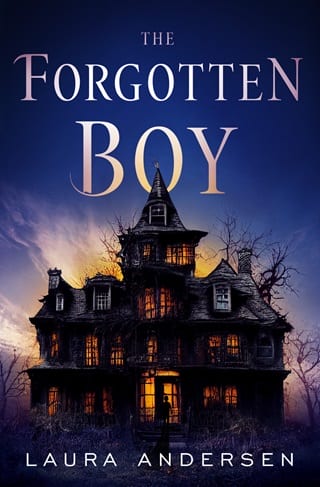Chapter Thirty-Four
CHAPTER THIRTY-FOUR
ISMAY APRIL 1461
Those that were adversaries and enemies to the Duke of York, on the thirtieth day of December the Year of Our Lord 1460 they fell upon the duke and killed him outside Wakefield, and his son Edmund the Earl of Rutland. When the death of these lords was known, great sorrow was made for them. May God have mercy on their souls.
On the twenty-ninth day of March the Year of Our Lord 1461, on that most holy Palm Sunday, our lord and great king Edward, son of the slain Duke of York, did defeat the enemies of the people in battle at Towton in Yorkshire. Margaret of Anjou and the aforesaid King Henry, being ill-loved by those they claimed to rule, fled to Scotland. The Sun in Splendor now shines over all.
Ismay was not surprised when one of her men told her Edward was coming to Havencross. He'd been in the North for more than a month now, mopping up the last pockets of Lancastrian resistance after Towton. Not that she'd been expecting him to come see her. She didn't expect anything anymore.
Except one thing …
At fully seven months gone, there was little chance of hiding her condition. Ismay stood in the forecourt, hand resting on the swell of her pregnancy, and watched England's king arrive at her home.
It was so hard to credit—careless, reckless, impudent, charming Edward as king. His father, yes. Richard of York had been a natural to politics and governing and the kind of worrying that leaders did. Edmund had had some of those gifts, but Edward? She supposed they would all just have to wait and see.
He hadn't taken on royal airs, at least not yet. He swung down from his horse and patted the shoulder of the boy who took his reins. Then he came straight to Ismay and took her hands in his, quick eyes and quicker mind understanding all.
"I am glad," he said, "that there will be something of Edmund still in the world. I am so sorry, my dear sister, that I could not bring him home to you."
Ismay would never have guessed that Edward's kindness would be the thing that broke her. She had not cried when the first rumors reached her of the Battle of Wakefield, had not cried when those few of her men who survived the battle returned to Havencross, had not cried when those men told her of Edmund's brutal death, her seventeen-year-old husband murdered by the Duke of Somerset while attempting to reach sanctuary.
Now she wept. So deeply and for so long that she was hardly aware when Edward easily swept her up and carried her inside.
When at last the flood receded, she and Edward were alone in the small space that had long ago been her father's study. He handed her a cup of spiced wine and, by the time she'd drained it, Ismay felt scoured clean—and empty. The emptiness where Edmund was not, and would never again be, short of heaven.
"Do you have any questions for me?" Edward asked.
She shook her head. "I know all I ever want to know about what happened at Wakefield."
"So do I," he said grimly.
For the first time, Ismay considered someone else's grief. Edward bowed his head over his clasped hands, and she studied what she could see of his face. His jawline was sharper and his left cheek showed the ravages and scars of recent battles.
"Edward." She leaned forward and placed one hand atop his clenched ones. "I am also sorry. For you, your mother, your siblings … oh God, Richard and George are so young still! Your father—"
Edward pulled away. "My father should have stayed put inside Sandal Castle and waited for me to arrive."
She wanted to say something more, to acknowledge the loss of the brother he'd been so close to, something as graceful as he had managed for her. But before her eyes she saw Edward put on the mask of leadership.
Of kingship.
"I can't stay," Edward said abruptly. "I'm expected at Middleham to make decisions about the prisoners."
"I appreciate you coming to see me." Ismay hesitated before adding, "Your Majesty."
He looked almost angry for a moment, but Edward of York, Edward the Earl of March and, it seemed, even Edward IV of England retained his innate sense of humor. His lips twitched into a reluctant smile and he leaned back in his seat, long legs stretched before him.
"I didn't come for you to fawn over me," he said. "We have business, you and I. With my father gone, I'm the head of the family."
For a brief moment, Ismay wondered what Cecily Neville would say to that.
Edward plowed on. "You, Ismay, are a member of my family, and so will Edmund's child be. It goes without saying that, even without those ties, I would consider it a matter of honor to ensure a girl raised in my father's household never lacked for anything. But you are tied to us, legally."
"Do you expect me to announce the marriage now?" she asked. "To trade on the most precious, private hours of my life in order to curry favor at your court?"
"No."
"Then why did you come, Edward?"
"Because I thought it possible that you were pregnant. As you are. Which means you and I need to have a conversation before I return to London for my coronation."
"Why?" she asked again. Edmund, she thought briefly, would have already known. His mind, turned to governing and politics, would have looked ahead, would have known what was coming.
"I am only king today because my father died at Wakefield," Edward explained. "I have no children of my own—not legitimate, anyway. Until I'm married and have sons, my brothers are my successors. If Edmund had lived, he would be my immediate heir."
Ismay refused to understand. "But Edmund didn't live."
"You and Edmund were married. Your child will be legitimate. If that child is a boy—"
"Absolutely not. Never."
"—your son takes precedence. Ismay, you want to think about it carefully. Once decisions are made and written into statute—"
"This child is all I have left. The only thing that this war for England's throne has left me. I am finished with battles and courts and eternal fighting over who should rule. I appreciate what you're offering, Edward, I do. But please, keep me out of this. You haven't told anyone about the marriage, have you?"
"No. Edmund was waiting until … until the fighting was over."
"Then don't tell anyone. There's no point to it now."
"You're about to give birth, Ismay. People will think—"
"I don't care what people think. Let them whisper. Let them scorn my child for a bastard. It doesn't matter. The only thing that matters is that I be allowed to raise my child here, far away from other people's fights. Promise me, Edward."
She knew she'd won when he said, with a glint in his eyes, "You might change your mind when people assume the child is mine."
She laughed, something she hadn't thought would happen again. "Just one more on a long list, then."
"Are you certain, Ismay? When I return to London, Warwick will draw up legal papers naming George as my heir until such time as I have sons. You won't regret it?"
Ismay gave a shiver for the ten-year-old George about to be thrown to the wolves. The reminder of Warwick only strengthened her resolve. If there was one person on earth that she never wanted to know the truth about her marriage and child, it was the Earl of Warwick. "I will regret nothing."
"All the same, I'll leave these with you." From the pouch he'd tossed on the table, Edward pulled out two items. The first was a livery badge, to be worn by servants and couriers and those going into battle—such badges were separate from coats of arms. Edward's coat of arms now was the royal one, with its lions and lilies. But his badge, the one he handed her, was different.
The five-petaled white rose of York, so familiar to Ismay, had been placed atop the golden rays of the sun. Even in her isolation and grief, Ismay had heard the stories about the Battle of Mortimer's Cross, how three suns had been seen in the sky before battle, how Edward had given a rousing speech claiming it a sign of God's favor on him.
"The Sun in Splendor," she whispered. And for just a moment, she allowed herself to imagine what a brilliant, charming, cultivated court Edward would create and imagined herself there …
But she couldn't imagine herself there without Edmund.
Edward slid a heavy ring onto the middle finger of her right hand. It had a similar design to the badge etched deeply into the surface.
"Your seal?" Ismay asked, shocked.
"A variation of it, for my family and nearest advisors. This way, if you need something to be seen only by me, you can seal it with this and it will remain private."
An optimistic if na?ve hope—Ismay wagered that Warwick knew multiple ways to read sealed letters—but the meaning of it touched her. Especially when Edward put his hands on her cheeks and kissed her on the forehead.
"Anything you need, Ismay, for the rest of your life. You have but to ask and England will answer."
It was only as he rode off that Ismay realized Edward had indeed made the jump to king—by equating himself with England.
 Fullepub
Fullepub 



